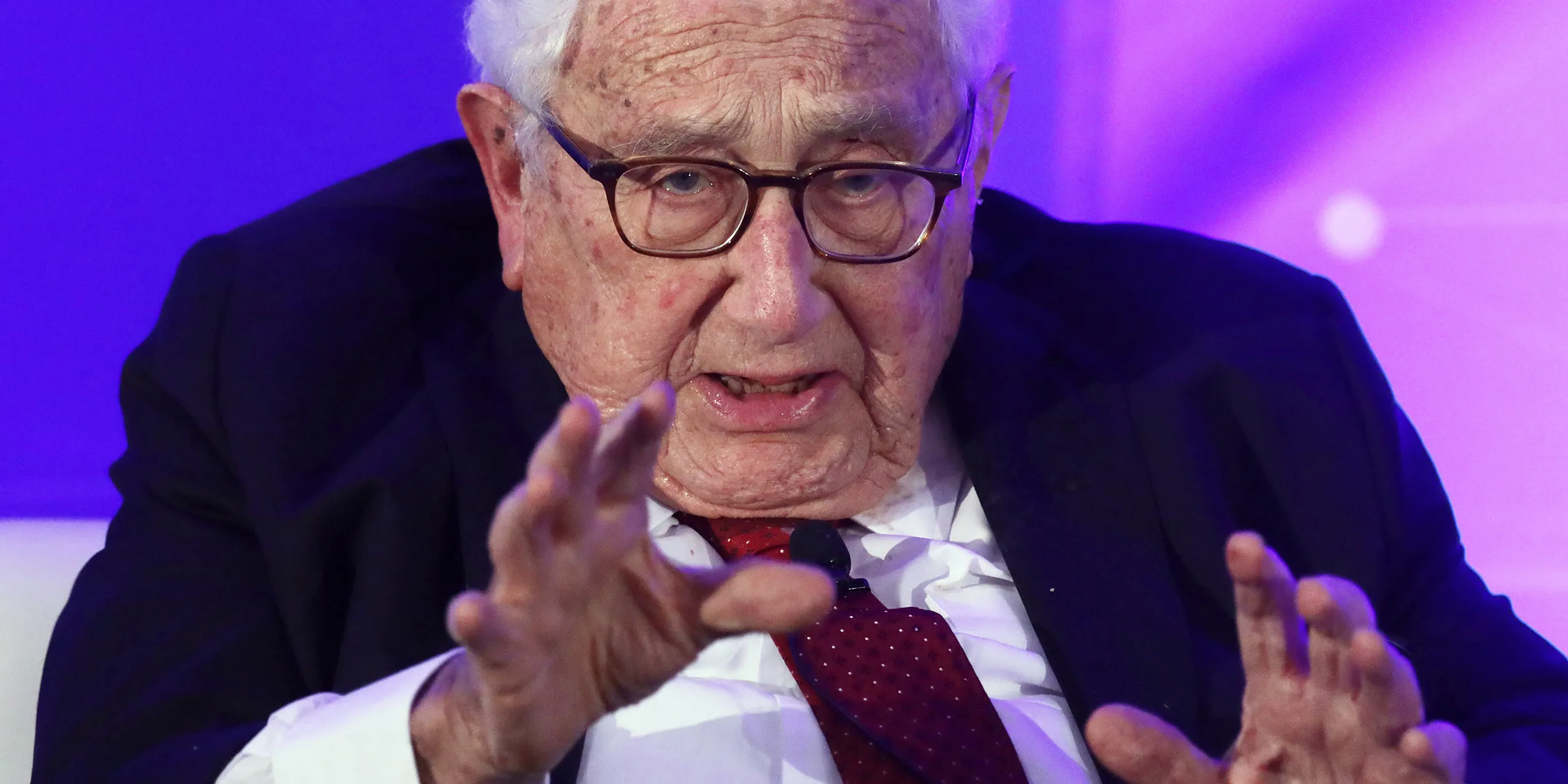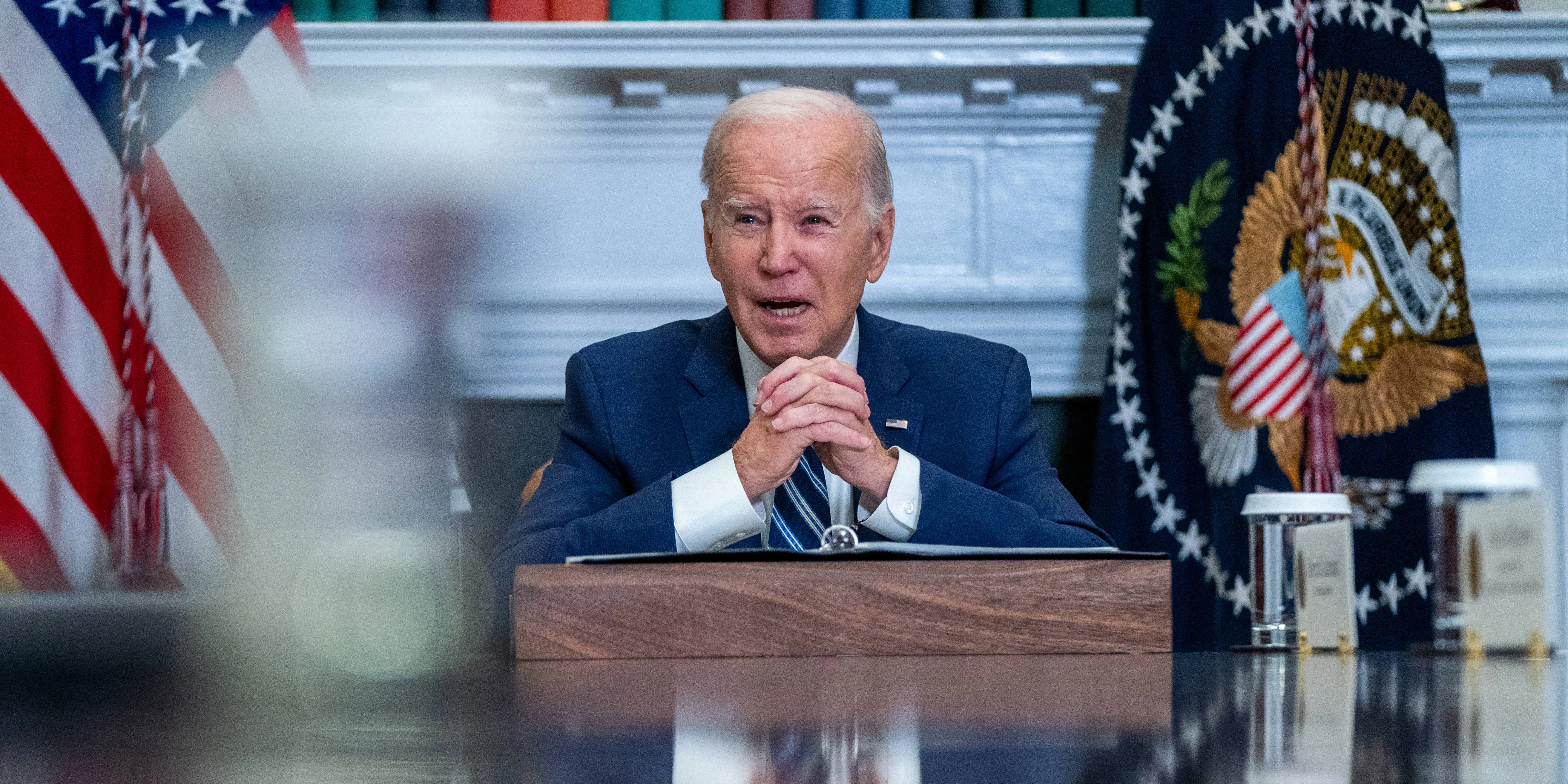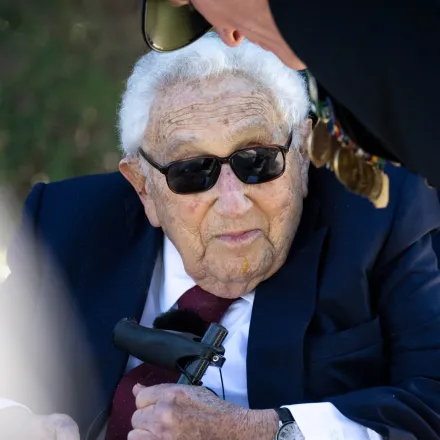
Henry Kissinger, national security adviser and secretary of state under two presidents and longtime éminence grise of the US foreign policy establishment, helped prolong the Vietnam War and expand that conflict into neutral Cambodia; facilitated genocides in Cambodia, East Timor, and Bangladesh; accelerated civil wars in southern Africa; and supported coups and death squads throughout Latin America.
Kissinger, who died on November 29 at his home in Connecticut, had the blood of at least three million people on his hands, according to his biographer Greg Grandin. He was 100 years old.
There were “few people who have had a hand in as much death and destruction, as much human suffering, in so many places around the world as Henry Kissinger,” said veteran war crimes prosecutor Reed Brody.
A 2023 investigation by The Intercept found that Kissinger, perhaps the most powerful national security adviser in American history and the chief architect of US war policy in Southeast Asia from 1969 to 1975, was responsible for more civilian deaths in Cambodia than was previously known, according to an exclusive archive of US military documents and interviews with Cambodian survivors and American witnesses.
The Intercept disclosed previously unpublished, unreported, and under-appreciated evidence of hundreds of civilian casualties that were kept secret during the war and remained almost entirely unknown to the American people. Kissinger bore significant responsibility for attacks in Cambodia that killed as many as 150,000 civilians – up to six times more noncombatants than the United States has killed in airstrikes since 9/11, according to experts.
Born Heinz Alfred Kissinger in Fürth, Germany, on May 27, 1923, he immigrated to the United States in 1938, among a wave of Jews fleeing Nazi oppression. Kissinger became a US citizen in 1943 and served in the US Army’s Counter Intelligence Corps during World War II. After graduating summa cum laude from Harvard College in 1950, he earned an MA in 1952 and a PhD two years later. He then joined the Harvard faculty, with appointments in the Department of Government and at the Centre for International Affairs.
While teaching at Harvard, he was a consultant for the administrations of John F. Kennedy and Lyndon B. Johnson before serving as national security adviser from 1969 to 1975 and secretary of state from 1973 to 1977 under Presidents Richard Nixon and Gerald Ford. A proponent of realpolitik, Kissinger greatly influenced US foreign policy while serving in government and, in the decades that followed, counselled US presidents and sat on numerous corporate and government advisory boards while authoring a small library of bestselling books on history and diplomacy.
Kissinger married Ann Fleischer in 1949; the two were divorced in 1964. In 1974, he married Nancy Maginnes. He is survived by his wife, two children from his first marriage, Elizabeth and David, and five grandchildren.
As national security adviser, Henry Kissinger played a key role in prolonging the US wars in Southeast Asia, resulting in the deaths of tens of thousands of American troops and hundreds of thousands of Cambodians, Laotians, and Vietnamese. During his tenure, the United States dropped nine billion pounds of munitions on Indochina.
In 1973, the Norwegian Nobel Committee awarded the Nobel Peace Prize to Kissinger and his North Vietnamese counterpart Le Duc Tho “for jointly having negotiated a ceasefire in Vietnam in 1973.”
“There is no other comparable honour,” Kissinger would later write of the prize he received for an agreement to end a war he encouraged and extended, a pact that not only failed to stop that conflict but also was almost immediately violated by all parties. Documents released in 2023 show that the prize – among the most controversial in the award’s history – was given despite the understanding that the war was unlikely to end due to the truce.
Tho refused the award. He said that the US had breached the agreement and aided and encouraged its South Vietnamese allies to do the same, while also casting the deal as an American capitulation. “During the last 18 years, the United States undertook a war of aggression against Vietnam,” he wrote. “American imperialism has been defeated.”
North Vietnam and its revolutionary allies in South Vietnam would topple the US-backed government in Saigon two years later, in 1975. That same year, due in large part to Nixon and Kissinger’s expansion of the war into the tiny, neutral nation of Cambodia, the American-backed military regime there fell to the genocidal Khmer Rouge, whose campaign of overwork, torture and murder then killed two million people, roughly 20 per cent of the population. Kissinger almost immediately sought to make common cause with the génocidaires.
“You should also tell the Cambodians that we will be friends with them. They are murderous thugs, but we won’t let that stand in our way. We are prepared to improve relations with them,” he told Thailand’s foreign minister.
As secretary of state and national security adviser, Kissinger spearheaded efforts to improve relations with the former Soviet Union and “opened” the People’s Republic of China to the West for the first time since Mao Zedong came to power in 1949. Kissinger also supported genocidal militaries in Pakistan and Indonesia. In the former, Nixon and his national security adviser backed a dictator who, according to CIA estimates, slaughtered hundreds of thousands of civilians.
In the latter, Ford and Kissinger gave President Suharto the go-ahead for an invasion of East Timor that resulted in about 200,000 deaths, around a quarter of the entire population.
In Latin America, Nixon and Kissinger plotted to overturn the democratic election of Chile’s socialist president Salvador Allende. This included Kissinger’s supervision of covert operations – such as the botched kidnapping of Chilean Gen René Schneider that ended in Schneider’s murder – to destabilise Chile and prompt a military coup.
“You did a great service to the West in overthrowing Allende,” Kissinger later told Gen Augusto Pinochet, the leader of the military junta that went on to kill thousands of Chileans. In Argentina, Kissinger gave another greenlight, this time to a terror campaign of torture, forced disappearances, and murder by a military junta that overthrew President Isabel Perón.
During a June 1976 meeting, Kissinger told the junta’s foreign minister, César Augusto Guzzetti: “If there are things that have to be done, you should do them quickly.” The so-called Dirty War that followed would claim the lives of an estimated 30,000 Argentine civilians.
Kissinger’s diplomacy also stoked a war in Angola and prolonged apartheid in South Africa. In the Middle East, he sold out the Kurds in Iraq and, wrote Grandin, “left that region in chaos, setting the stage for crises that continue to afflict humanity.”
Through a combination of raw ambition, media manipulation and an uncanny ability to obscure the truth and avoid scandal, Kissinger transformed himself from a college professor and bureaucrat into the most celebrated American diplomat of the 20th century and a bona fide celebrity. Hailed as the “Playboy of the Western Wing” and the “sex symbol of the Nixon administration,” he was photographed with starlets and became a fodder for the gossip columns.
While dozens of his White House colleagues were laid low by myriad Watergate crimes, which cost Nixon his job in 1974, Kissinger skirted the scandal and emerged a media darling.
“We were half-convinced that nothing was beyond the capacity of this remarkable man,” ABC News’s Ted Koppel said in a 1974 documentary, describing Kissinger as “the most admired man in America.” There was, however, another side to the public figure often praised for his wit and geniality, according to Carolyn Eisenberg, author of Never Lose: Nixon, Kissinger and the Illusion of National Security, who spent a decade reading Kissinger’s White House telephone transcripts and listening to tapes of his unvarnished conversations.
“He had a disturbed personality and was unbelievably adolescent. He admitted he was egotistical, but he was far beyond that,” she told The Intercept. “He was, in many respects, very much stuck at age 14. His opportunism was boundless. His need to be important, to be a celebrity, was gigantic.”
“He was, in many respects, very much stuck at age 14. His opportunism was boundless. His need to be important, to be a celebrity, was gigantic.”
- The Intercept report











